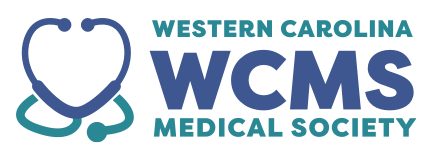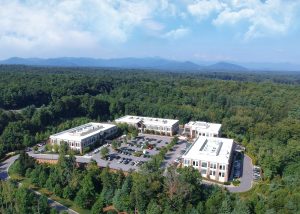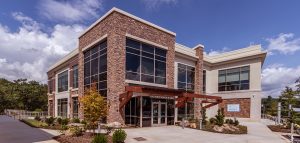A Legacy for Healthcare in Western NC
By Claire Horne, UNC Health Foundation
With a successful medical career in the North Carolina mountains behind him, Frank Moretz, MD ’75, isn’t resting on his laurels. His legacy gift aims to build the medical pipeline and close the care gap in western North Carolina (WNC). The goal is big, the challenge is real – and the potential for impact is significant, since the gift works in tandem with two key WNC entities with a track record of success.
Mountain Area Health Education Center, or MAHEC, was established in 1974 to improve training and retention of healthcare professionals in WNC. MAHEC serves the state’s 16 westernmost counties and is home to UNC Health Sciences at MAHEC, an academic health center that includes the UNC School of Medicine (SOM) Asheville campus. The UNC SOM Asheville medical program has grown from four students in 2009 to 35 students in 2021-22.
UNC’s partnership with MAHEC is reshaping the healthcare landscape in the region. Dr. Moretz’s gift will further grow and sustain this work.
Scholarships and the Bigger Picture
When Dr. Moretz retired from an Asheville-based anesthesiology practice in 2015, he knew he wanted to do more and continue to serve. During his time in Asheville, he had seen many patients whose disease processes were advanced because of a lack of medical care.
“I knew that my involvement in healthcare was fleeting and limited,” said Dr. Moretz. “Nearing retirement, I pondered how I could contribute to the bigger picture of medical care in the western part of the state.”
His legacy gift will support scholarships at UNC SOM Asheville for medical students from western North Carolina. The Moretz Scholars will receive support for their rotations in mountain clinics and rural communities. When the gift is realized, Moretz Scholars will have robust funding for full tuition support and additional funding for professional development.
Dr. Moretz began planning his gift years ago but also wanted to fund something immediately to support the medical education pipeline in WNC. In 2022 he established the Frank H. Moretz MD ’75 Western North Carolina Health Impact Fund, an endowment with a focus on student scholarships for UNC SOM Asheville students, enrichment activities, and pipeline programs to enhance opportunities for young people from WNC to gain admission to UNC School of Medicine.
He explained that since his medical school tuition in the 70s was only $800 per semester, the taxpayers of North Carolina subsidized his education, allowing him to graduate debt free. “Since UNC took a chance on me, I want to pay it forward,” said Dr. Moretz, “and also repay N.C. taxpayers by supporting the next generation of physicians here in western North Carolina.”
With all WNC counties experiencing provider shortages, there is an urgent need for physicians in the mountains. While it’s easy to chalk up these shortages to geographic isolation, the medical education system simply isn’t optimized to create primary care doctors for rural areas. Lower compensation for the discipline and less exposure to rural populations during training creates barriers for medical students who might otherwise be interested in rural primary care.
The Moretz bequest provides full tuition support for Moretz Scholars – it targets the debt burden while ensuring training and mentorship with physicians who are grounded in rural communities.
“When UNC decided to rotate medical students through Asheville, I wanted to support this effort, knowing that physicians tended to practice near where they trained,” said Moretz.
The Link Between Training and Practicing in Rural Areas
Robyn Latessa, MD, director and assistant dean of the MD program at UNC SOM Asheville, explained the importance of investing in students from the western part of the state. “The best evidence for students and residents staying in a rural area is that they come from rural areas. Investing in students who have the greatest potential to practice rural primary care is the best way to build this workforce for western North Carolina.”
UNC SOM Asheville’s curriculum is built around getting students into the community, with a longitudinal curriculum that allows for continuity of care and cultivating relationships with patients and preceptors over a longer period of time. There is strong evidence, according to Latessa, that this type of training and curriculum increases the number of primary care providers in rural areas. Numbers of students entering primary care in rural areas can be as low as 2%, but 21% of Asheville campus graduates end up practicing in rural communities.
William Hathaway, MD, chief executive officer of MAHEC, said that early on MAHEC recognized the importance of training potential providers in rural communities if they wanted them to stay and practice in those areas.
If students only train in clinics and hospitals in large academic centers, they’re missing a key opportunity for exposure. “Medical students are generally not training in rural areas. They train in centrally located academic centers, with role models who are physicians in larger, better-resourced communities,” said Hathaway.
Moretz Scholarships Will Serve WNC
Training in rural communities lets people visualize the possibility of what it would be like to work there, said Hathaway. “The goal is to match the training to where people need care and where there are care deficits. That’s what keeps us going – fulfilling that mission to recruit, train, and retain the healthcare workforce for this region.”
Travis Williams, MD ’20, didn’t grow up in the mountains, but as a recent Kenan Rural Primary Care Medical Scholar, he rotated through rural clinics in Hendersonville, Linville, Sylva and Cherokee and trained with many MAHEC mentors he felt “incredibly fortunate” to have known.
“When you get out in some of these smaller communities, you may be two hours from a big city or two hours from a specialist. You need to be prepared for that – that’s the point of getting as much experience as you can and training with a rural mindset,” said Williams. “You’re not always going to have a rheumatologist near you or a pulmonologist 15 minutes down the road.”
With the Moretz legacy gift and endowment, the chances of finding more physicians down the road in rural communities are sure to increase.
“I wanted to practice medicine because I wanted to serve,” said Dr. Moretz. “And I hope that the scholarship will serve the people of western North Carolina in the future.
For more information on supporting medical education across North Carolina, please contact Jeanine Simmons, Senior Executive Director of Development, Medical Education and Alumni, at jeanine.simmons@med.unc.edu.




